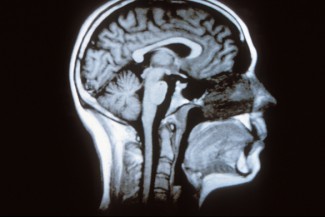Cerebrospinal fluid (CSF) is a fluid running through brain ventricles and spinal canal. It plays a role in the protection against shocks and infections, permits clearance of central nervous system’s wastes and also contains various signaling molecules which roles are still not clearly identified. The role of the CSF itself is still not entirely elucidated either but seems yet crucial to the normal development of vertebrates.
One of the main characteristics of brain ventricles and spinal canal’s surface is the presence of cilia, allowing circulation of CSF. Dysfunction of these cilia can prevent natural flow of CSF, causing excessive pressure on the brain or spinal cord, eventually leading to pathologies such as hydrocephalus.
Using a zebrafish model, which has the characteristic of being transparent, Claire Wyart’s team highlighted a new role for cilia in the CSF. Researchers showed that motility of those cilia is essential to the formation of Reissner fiber, composed of SCO-Spondin protein aggregates, described more than one century ago but which functions were little-studied.
The study of a model carrying a mutation on the gene coding for SCO-Spondin, causing either a complete loss of the protein or a modification in its structure, showed a disruption in the formation of Reissner fibers. In both cases, absence of motile cilia and/or absence of SCO-Spondin protein leads to deformation of posterior axis, appearing very early during development and increasing with age.
These results, published in Current biology, highlight « the essential role of Reissner fibers during embryonic development and opens promising avenues to discover new signals in the CSF influencing the development of body axis” concludes Pierre-Luc Bardet, associate professor at Sorbonne Université.
Recent studies showed a role of CSF flow/composition in animal models of juvenile idiopathic scoliosis. In humans, this pathology is characterized by unexplained, sudden and progressive development of spine deformations and affects 0.2% of the population in France.
A signal in the CSF could be an avenue of research towards a better understanding of juvenile scoliosis.
Sources
The Reissner Fiber in the Cerebrospinal Fluid Controls Morphogenesis of the Body Axis. Cantaut-Belarif Y, Sternberg JR, Thouvenin O, Wyart C, Bardet PL. Curr Biol. 2018 Aug 6
https://www.ncbi.nlm.nih.gov/pubmed/30057305







